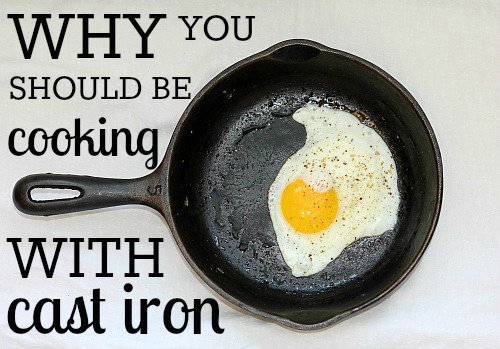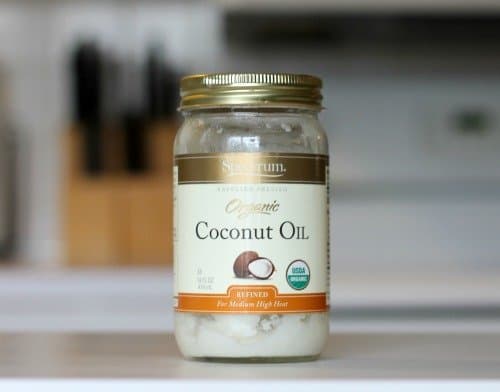 Benefits
Benefits
It’s nonstick! That means perfect eggs every time you cook!
Cast iron cookware is less expensive than stainless steel pots and pans and you can often find it used if you’re willing to look. Also, not only are you going to spend less money on it, cast iron is a smart investment since it has the ability to last for generations.
From a health perspective switching to cast iron rids your kitchen of PTFE, the chemical found in Teflon. Added bonus: cast iron cookware will naturally add iron to your diet! Many of us are deficient and this is an easy way to up your daily intake.
How to Season Cast Iron
Before using cast iron must be properly seasoned. Many people use olive oil to season their cookware; however, I suggest using coconut oil since it remains stable at high temperatures. Simply coat the piece with a small amount of oil on the insides as well as the outer sides; this will prevent any drips from sticking. Perform your original seasoning outside in your grill, if you have one, this will prevent your house from smelling of oil and allow you to reach a higher temperature. The original seasoning should be done at about 500 degrees.
Cast iron is often sold pre-seasoned, this is simply a jump on the process, it will still need to be seasoned to reach the ideal smooth, non-stick state.
Once You’re Cooking
Many people claim you need to cook fatty foods in your cookware in order to keep them seasoned, this is not the case. If you are going to cook a food that is going to release a significant amount of fat while cooking you need to do nothing to your skillet beforehand. However, if the food being cooked is not fatty, it would be best to add a small amount of oil or butter first.
After the meal is cooked and it has cooled, rinse out any leftover food particles with a small amount of water. DO NOT use soap unless you absolutely have to and re-season the item as soon as possible if soap was used. Dish soap is a de-greaser and will undo a bit of the seasoning every time it is used.
Keep it seasoned by storing it in the oven with a small layer of coconut oil on it, when the oven is in use, just leave the skillet or pan in there. This will allow an additional layer of seasoning to be added but with no extra work to you!
Tools
Avoid metal utensils that can scrape and damage a pan’s seasoning. Instead opt for wooden and silicone utensils that can withstand high heats and won’t undo any seasoning.
If any food does get stuck, use a bit of coarse salt and oil to scrub it off or use a scraper.
Cons
Cast iron is fairly heavy compared to alternatives, pay extra care when using on glass stove tops.









































